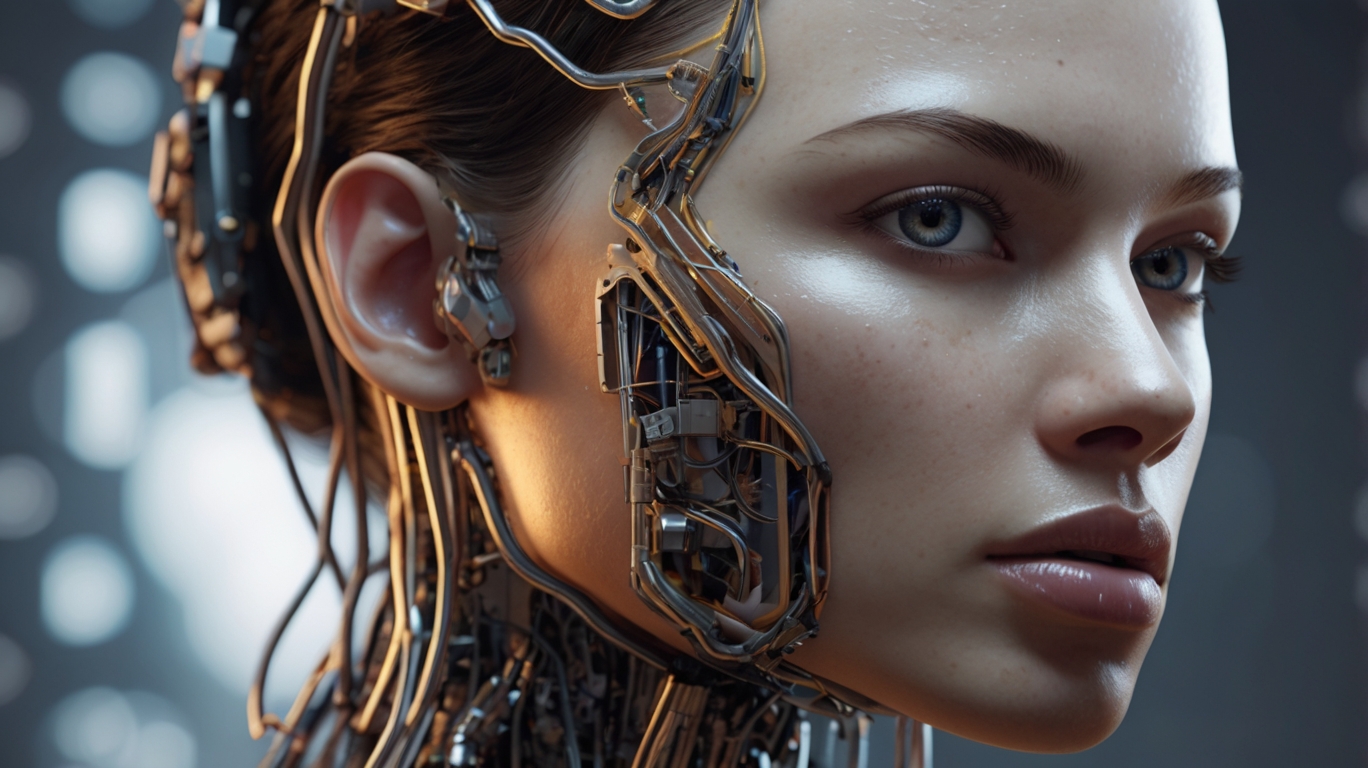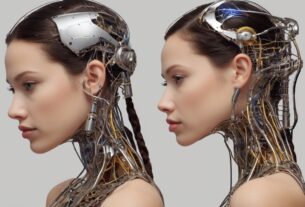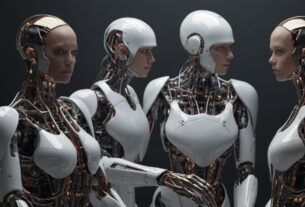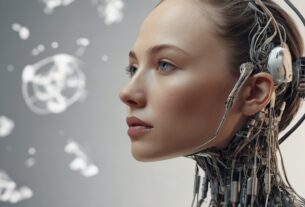Artificial Intelligence:
In just a few short years, artificial intelligence (AI) has moved from being a futuristic concept to a present-day reality. It now powers everything from voice assistants and recommendation algorithms to self-driving cars and predictive analytics. But AI is more than just a technological trend—it’s a seismic shift that’s reshaping how businesses operate, how careers evolve, and how society at large adapts to new innovations. In this article, we’ll explore the profound impact AI is having across industries, the job market, and the broader technological landscape.
The Rise of AI: A Brief Overview
AI refers to machines or software that simulate human intelligence, enabling them to perform tasks such as learning, reasoning, problem-solving, perception, and even language understanding. While the concept dates back to the 1950s, recent breakthroughs in machine learning, natural language processing, and computing power have propelled AI into the mainstream.
From chatbots that provide instant customer service to algorithms that detect fraudulent transactions in real time, AI is becoming a cornerstone of digital transformation efforts around the world. The global AI market was valued at over $136 billion in 2022 and is expected to grow exponentially over the coming decade.
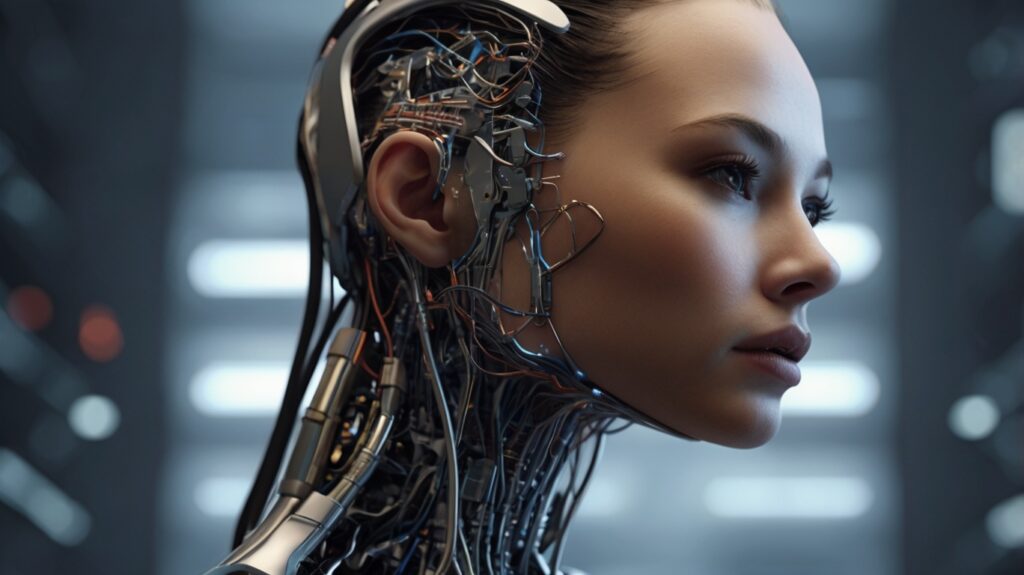
AI in Business: Boosting Efficiency and Innovation
Businesses are among the biggest beneficiaries of AI. Across industries, AI is driving efficiency, cutting costs, and unlocking new revenue streams. Let’s take a closer look at how AI is revolutionizing business operations.
1. Automation of Repetitive Tasks
One of the most immediate advantages of AI is its ability to automate routine, time-consuming tasks. In sectors like manufacturing and logistics, robots and intelligent systems streamline supply chains and increase productivity. In customer service, AI-powered chatbots can handle basic queries, freeing up human agents for more complex issues.
2. Data-Driven Decision Making
Today’s businesses are awash in data. AI helps make sense of this vast information through advanced analytics and pattern recognition. From predicting customer behavior to identifying market trends, AI enables companies to make faster, smarter decisions. Retailers, for example, use AI to optimize inventory management and personalize product recommendations.
3. Improving Customer Experience
AI is also transforming how businesses interact with customers. Recommendation engines, sentiment analysis, and personalized marketing campaigns powered by AI create more tailored and engaging experiences. This not only increases customer satisfaction but also enhances brand loyalty.
4. Enhanced Security and Risk Management
AI algorithms are now essential in cybersecurity. They can detect anomalies, identify potential threats, and respond to breaches much faster than traditional systems. In finance, AI helps assess credit risk, detect fraud, and ensure compliance with regulatory requirements.
The Impact of AI on Careers: Threat or Opportunity?
AI’s rise has sparked concerns about job displacement. While it’s true that automation may eliminate some roles, particularly those involving repetitive or low-skill tasks, it also creates new opportunities. The workforce is not disappearing—it’s evolving.
1. Shifting Job Roles
AI is changing the nature of work. Roles that were once purely manual or transactional now require analytical thinking, creativity, and emotional intelligence. For instance, while AI can analyze data quickly, human experts are still needed to interpret the results and make strategic decisions.
2. Emergence of New Career Paths
The demand for professionals with AI-related skills is growing rapidly. Careers in machine learning, data science, AI ethics, and robotics are in high demand. Universities and online platforms are increasingly offering specialized programs to meet this need. Additionally, roles like AI trainers, algorithm auditors, and human-AI interaction designers are emerging as hybrid jobs that blend technology and humanity.
3. Upskilling and Lifelong Learning
As AI continues to reshape the workplace, lifelong learning is becoming essential. Professionals across all industries need to adapt by developing digital literacy and understanding how to work alongside intelligent systems. Employers are also investing in reskilling programs to prepare their workforce for the future.
4. Human-Centered Roles Still Matter
Despite AI’s capabilities, certain roles remain uniquely human. Jobs that require empathy, interpersonal communication, ethical judgment, and creative problem-solving are difficult to replicate. Professions in healthcare, education, counseling, and the arts will continue to rely heavily on human skills, although AI may enhance their effectiveness.
AI and the Future of Technology: What Lies Ahead
The future of AI is full of promise, but it also brings complex challenges. As AI becomes more advanced, it will play an even greater role in shaping the technological landscape.
1. Smarter and More Autonomous Systems
We can expect AI to become more autonomous and adaptive. Self-driving vehicles, for instance, are becoming increasingly capable of navigating complex environments. In the workplace, AI-driven robots may perform tasks alongside humans in a seamless, collaborative manner.
2. The Rise of Generative AI
Generative AI tools like ChatGPT and DALL·E are redefining creativity. These systems can generate text, images, music, and even code, raising questions about authorship and originality. While they open new creative possibilities, they also challenge traditional notions of intellectual property and authenticity.
3. Ethical and Societal Implications
As AI gains power, ethical considerations become more urgent. Issues such as algorithmic bias, data privacy, surveillance, and job displacement require thoughtful governance. Policymakers, technologists, and communities must work together to ensure AI is developed and used responsibly.
4. AI in Global Development
AI holds the potential to address some of the world’s most pressing issues. From improving crop yields through smart agriculture to diagnosing diseases in remote areas, AI can help bridge gaps in healthcare, education, and infrastructure. However, equitable access remains a challenge, and efforts must be made to avoid widening the digital divide.
Real-World Examples of AI in Action
To better understand the transformative power of AI, let’s examine some real-world applications:
- Healthcare: IBM Watson is being used to assist doctors in diagnosing complex diseases and recommending personalized treatments. AI models can detect early signs of conditions like cancer with remarkable accuracy.
- Retail: Amazon’s recommendation engine uses AI to suggest products based on user behavior, dramatically increasing customer engagement and sales.
- Finance: Companies like JPMorgan Chase use AI for fraud detection and algorithmic trading, making financial systems more secure and efficient.
- Transportation: Tesla and other automakers are using AI to develop autonomous driving features that aim to reduce accidents and improve traffic flow.
- Education: AI-driven platforms like Duolingo personalize learning experiences for students, adapting in real-time to their strengths and weaknesses.
Building a Human-Centered AI Future
While AI continues to advance at a rapid pace, it’s essential to keep humanity at the core of its development. Technology should be a tool for empowerment—not a replacement for human value.
1. Inclusive Design and Development
AI systems must be designed with diversity and inclusivity in mind. This means using diverse datasets, engaging stakeholders from varied backgrounds, and building algorithms that serve all communities fairly.
2. Transparency and Accountability
To foster trust, AI systems must be transparent in how they operate. Users should understand how decisions are made and have recourse in cases of error or bias. Accountability mechanisms—such as audits, regulations, and oversight bodies—will be critical in the years ahead.
3. Collaboration Between Humans and AI
Rather than viewing AI as a competitor, we should embrace it as a collaborator. Human-AI collaboration can lead to better outcomes in everything from medical research to creative industries. By combining human intuition with machine precision, we unlock powerful new capabilities.
4. Education for the Next Generation
Preparing the next generation for an AI-driven world starts with education. Schools must teach not only technical skills but also ethics, critical thinking, and emotional intelligence. This holistic approach ensures that future leaders are equipped to navigate the complexities of AI with wisdom and compassion.
Conclusion: Embracing the AI Revolution
Artificial intelligence is not just a technological advancement—it’s a catalyst for global transformation. As it redefines industries, reconfigures careers, and reshapes the future of innovation, AI challenges us to rethink what it means to work, to create, and to thrive in the 21st century.
The key to success in this new era lies in balance: between automation and humanity, between efficiency and empathy, and between innovation and responsibility. Businesses, workers, and governments must work together to harness the potential of AI while mitigating its risks.
Ultimately, the AI revolution is not something to fear—it’s something to shape. By approaching it with foresight, inclusivity, and a human-centered mindset, we can ensure that the future of AI is not only intelligent but also just, ethical, and profoundly human.
Artificial Intelligence:
FAQ: Artificial Intelligence in Business, Careers, and Technology
1. What is artificial intelligence (AI)?
Artificial intelligence (AI) refers to machines or software systems that can perform tasks typically requiring human intelligence, such as learning, problem-solving, recognizing patterns, and understanding language.
2. How is AI used in business today?
AI is used in many ways across businesses, including automating repetitive tasks, analyzing large data sets for decision-making, improving customer experiences through personalization, and enhancing cybersecurity systems.
3. Will AI replace human jobs?
AI may automate certain roles, especially repetitive or low-skill tasks, but it also creates new job opportunities. Many careers are evolving, not disappearing. Jobs requiring creativity, emotional intelligence, and human judgment are still in high demand.
4. What new careers are emerging due to AI?
Careers in data science, machine learning, AI ethics, algorithm auditing, and human-AI interaction are rapidly growing. There is also increasing demand for professionals who can combine technical and human-centered skills.
5. How can professionals prepare for the AI-driven future?
Professionals can prepare by learning new digital skills, staying updated on AI trends, and embracing lifelong learning. Soft skills like communication, critical thinking, and adaptability are just as important as technical knowledge.
6. What industries are being most impacted by AI?
AI is impacting nearly every industry, but some of the most affected include healthcare, finance, retail, manufacturing, transportation, and education. Each sector uses AI differently to improve efficiency and outcomes.
7. What are the ethical concerns related to AI?
Key ethical concerns include algorithmic bias, data privacy, job displacement, lack of transparency, and surveillance. Developing responsible and inclusive AI systems is critical to ensuring ethical use.
8. What is generative AI, and why is it important?
Generative AI refers to AI systems that can create content—like text, images, or music—based on prompts. Tools like ChatGPT and DALL·E are examples. They’re important because they expand the creative potential of technology but also raise questions about originality and intellectual property.
9. How can AI improve global development and equality?
AI can help solve global challenges by improving healthcare access, advancing education, enhancing agriculture, and optimizing infrastructure. However, equitable access and digital inclusion are essential to prevent widening the global tech divide.
10. What is the future of AI in society?
The future of AI is promising but complex. Smarter, more autonomous systems will continue to emerge, transforming how we live and work. Society must focus on building ethical, transparent, and human-centered AI to ensure a positive impact.
read also:

